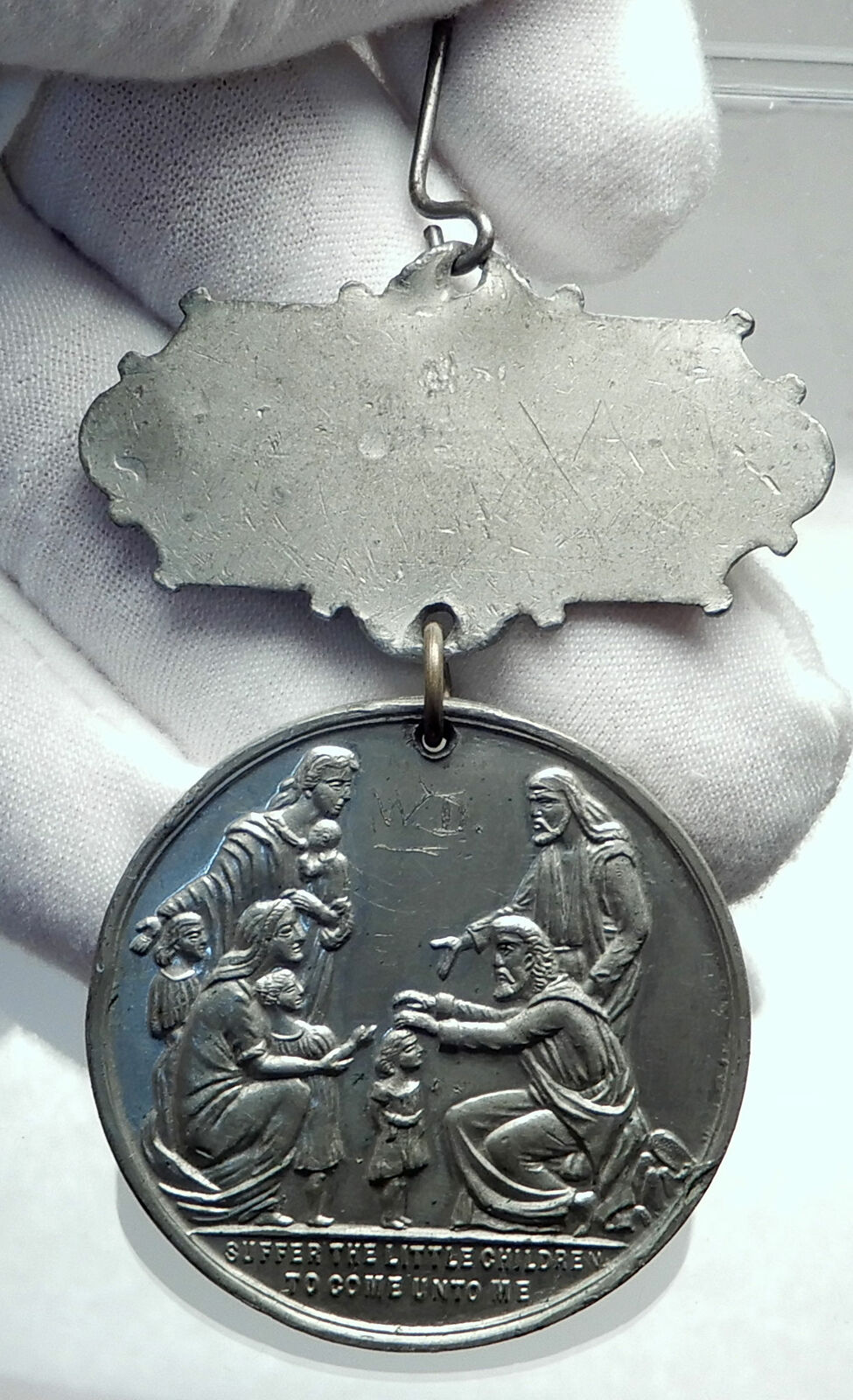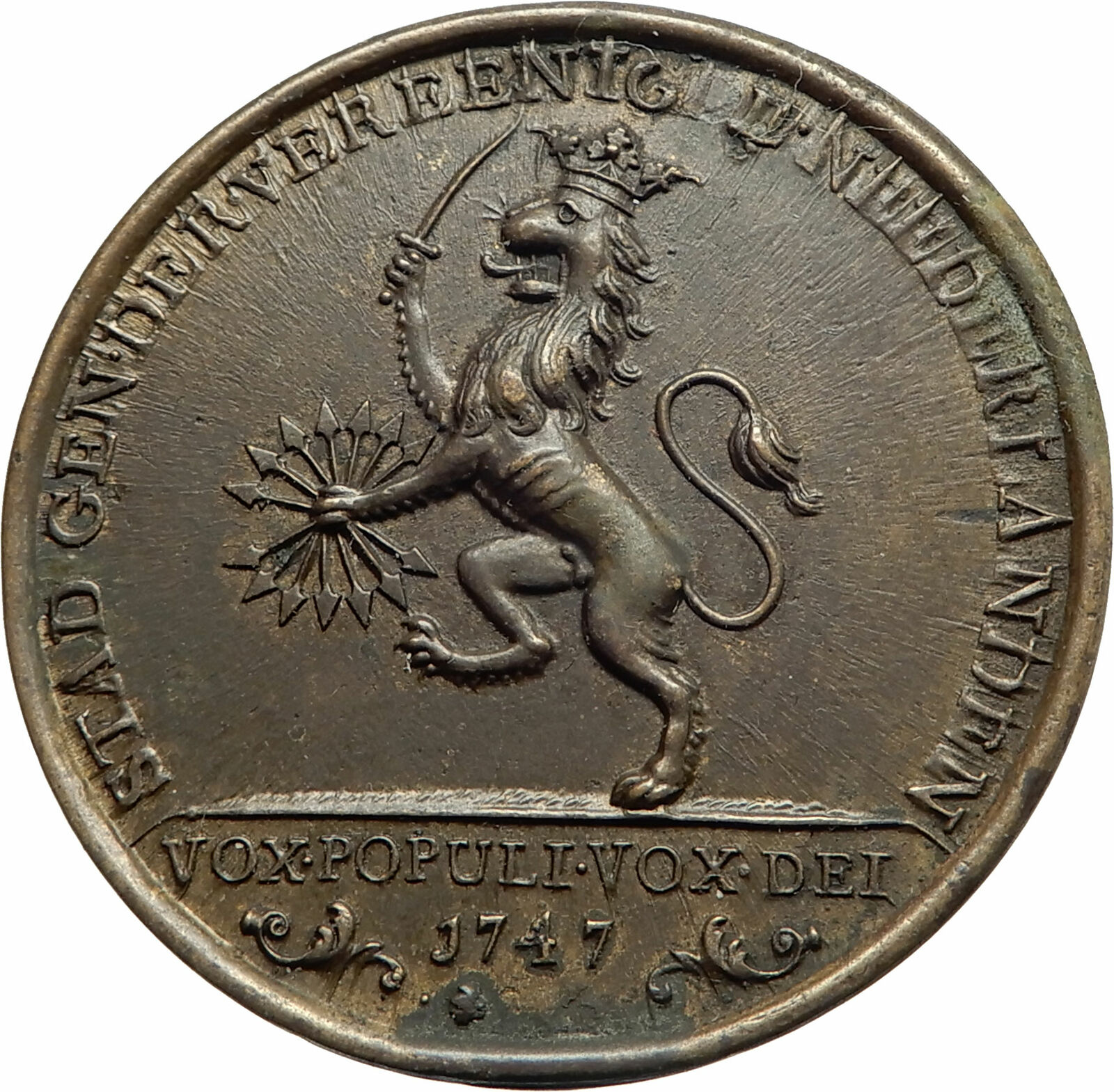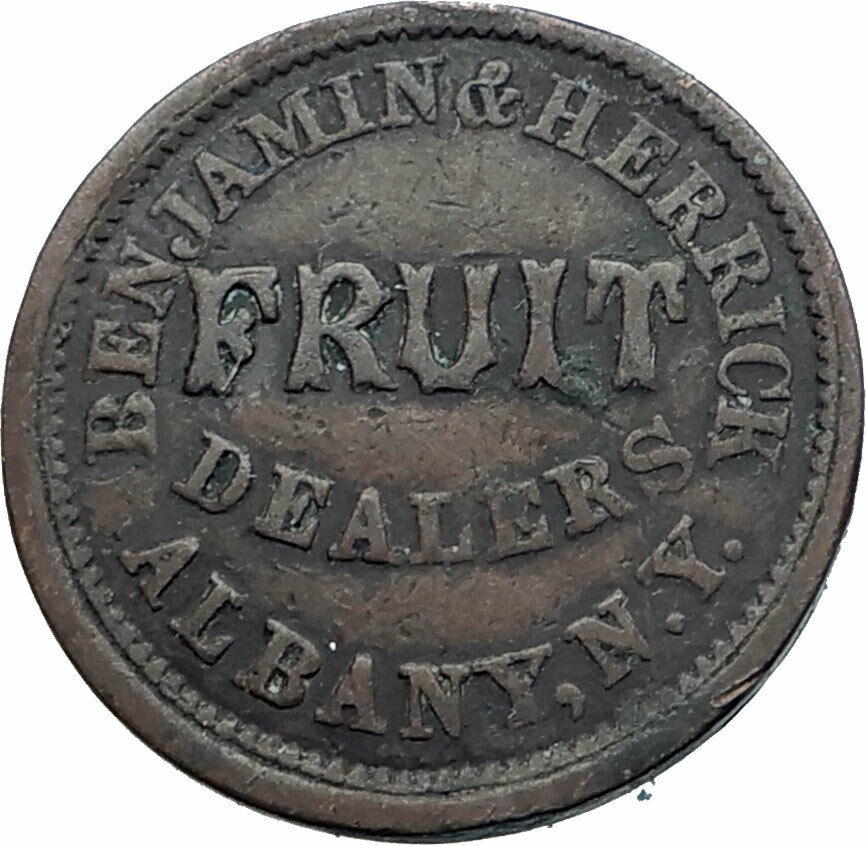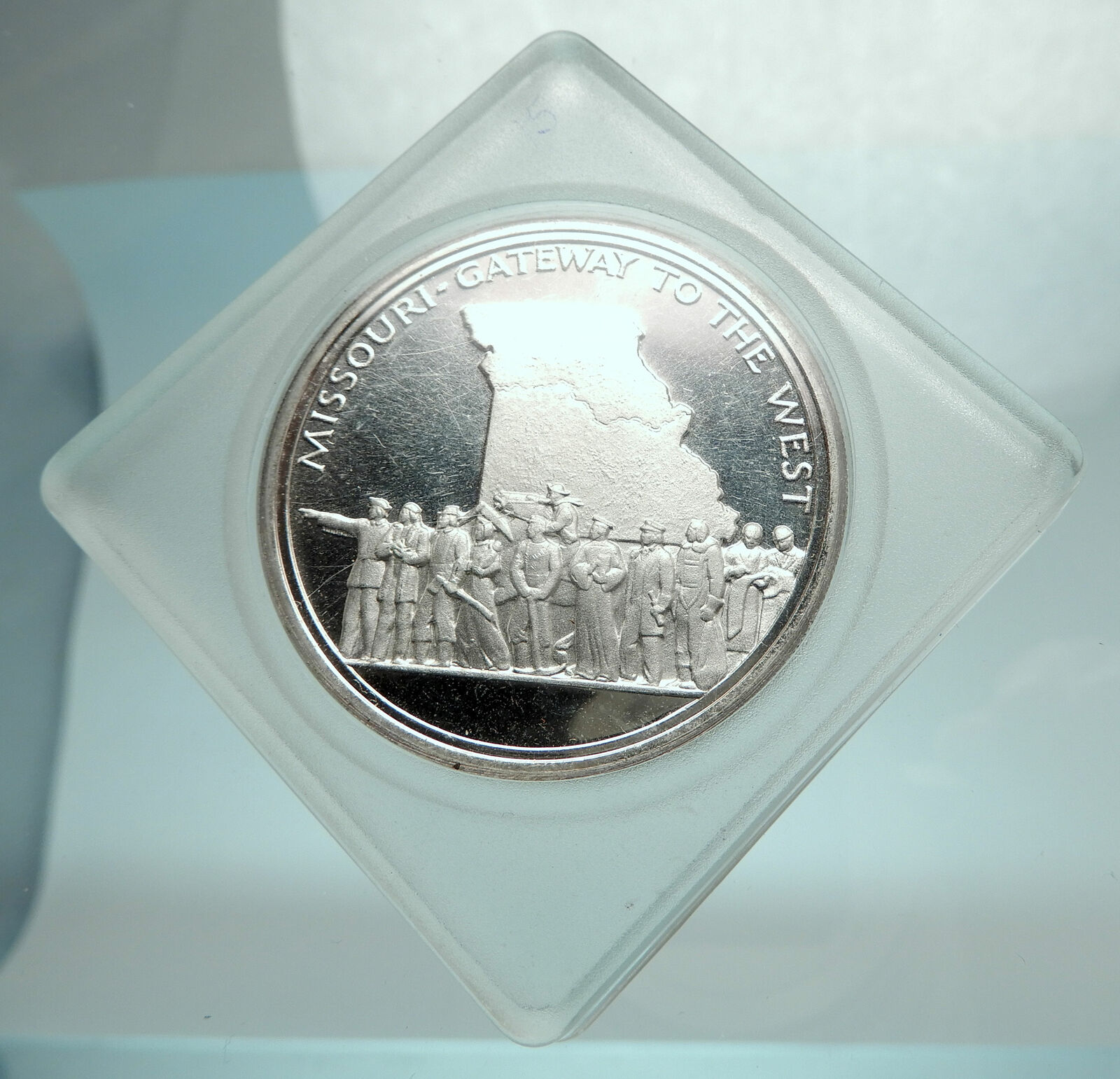|
German States – Hanover – Ruler: King George V
Battle of Langensalza
1866 Bronze Medal 35mm (24.40 grams)
Reference: Jauner
GEORG V v. G.G. KOENIG v. HANNOVER JAUNER, George facing left.
LANGENSALZA 27. JUNI 1866., Wreath.
You are bidding on the exact item pictured, provided with a Certificate of Authenticity and Lifetime Guarantee of Authenticity.
 The Battle of Langensalza was fought on 27 June 1866, during the Austro-Prussian War, near Bad Langensalza in what is now modern Germany, between the Kingdom of Hanover and the Kingdom of Prussia. The Hanoverians won the battle but were then surrounded by a larger and reinforced Prussian army. Unable to link up with their Bavarian allies to the south, the Hanoverians surrendered. The Battle of Langensalza was fought on 27 June 1866, during the Austro-Prussian War, near Bad Langensalza in what is now modern Germany, between the Kingdom of Hanover and the Kingdom of Prussia. The Hanoverians won the battle but were then surrounded by a larger and reinforced Prussian army. Unable to link up with their Bavarian allies to the south, the Hanoverians surrendered.
That marked the demise of the Hanoverian army and the annexation of Hanover into the burgeoning Prussia, which systematically unified Germany into the modern nation state.
Hanover began in an excellent position, as the Prussian attack happened to occur during Hanoverian summer exercises, and its army was already mobilised. Realising the vast size of the total Prussian force, George directed his 19,000 man army under General Alexander von Arentschildt to withdraw quickly and to march south to link up with Bavarian allies. Prussia pressed 40,000 total troops into Hanover, which then split into four detachments under Generals Falckenstein, Goeben, Flies, and Beyer. Falckenstein, recognizing the absence of an army to fight, marched unopposed into the Hanoverian capital, north of the marching Hanoverians. General Helmuth von Moltke, the Prussian commander, also ordered Goeben to the north and, in turn, deployed Beyer to the Hanoverians’ south, and Flies, with 9,000 troops, quickly marched around to the west. That formed a box around the Hanoverian army, with Prussia itself forming the Eastern side.
Moltke ordered Flies to hold fast and to intercept Hanoverians trying to break through westward as Falckenstein’s force performed the main Prussian assault from the north. In direct defiance of his orders, Flies gathered his detachment and directly attacked the Hanoverian army. Following a feint toward Thamsbruck to the North, the Prussian forces under Flies made a concentrated assault toward Merxleben. The much larger Hanoverian force and artillery fire drove them back toward the actual city of Langensalza. Having a force more than twice the Prussian detachment’s size, Arentschildt severely routed Flies’s troops, capturing more than 900 men.
Although the Hanoverians attained a decisive victory in the actual battle, the fighting halted their movement and allowed the other Prussian forces from the north and the south to converge on the battle site. Out of options, George and the Hanoverians pulled back to the east, which was farther from their Bavarian allies. Pinned down against the Harz Mountains and out of options, George surrendered in Nordhausen two days after the battle.
 George V (George Frederick Ernest Albert; 3 June 1865 – 20 January 1936) was King of the United Kingdom and the British Dominions, and Emperor of India, from 6 May 1910 until his death in 1936. George V (George Frederick Ernest Albert; 3 June 1865 – 20 January 1936) was King of the United Kingdom and the British Dominions, and Emperor of India, from 6 May 1910 until his death in 1936.
He was the second son of Albert Edward, Prince of Wales (later King Edward VII), and the grandson of the reigning British monarch, Queen Victoria. From the time of his birth, he was third in the line of succession behind his father and his elder brother, Prince Albert Victor, Duke of Clarence and Avondale. From 1877 to 1891, George served in the Royal Navy, until the unexpected death of his elder brother in early 1892 put him directly in line for the throne. On the death of his grandmother in 1901, George’s father became King-Emperor of the British Empire, and George was created Prince of Wales. He succeeded his father in 1910. He was the only Emperor of India to be present at his own Delhi Durbar.
His reign saw the rise of socialism, communism, fascism, Irish republicanism, and the Indian independence movement, all of which radically changed the political landscape. The Parliament Act 1911 established the supremacy of the elected British House of Commons over the unelected House of Lords. As a result of the First World War (1914-18) the empires of his first cousins Tsar Nicholas II of Russia and Kaiser Wilhelm II of Germany fell while the British Empire expanded to its greatest effective extent. In 1917, George became the first monarch of the House of Windsor, which he renamed from the House of Saxe-Coburg and Gotha as a result of anti-German public sentiment. In 1924 he appointed the first Labour ministry and in 1931 the Statute of Westminster recognised the dominions of the Empire as separate, independent states within the Commonwealth of Nations. He was plagued by illness throughout much of his later reign and at his death was succeeded by his eldest son, Edward VIII.
Hanover or Hannover is the capital and largest city of the German federal state of Lower Saxony, and its 535,061 (2017) inhabitants make it the thirteenth largest city of Germany, as well as the third-largest city of Northern Germany after Hamburg and Bremen. The city lies at the confluence of the River Leine (progression: Aller→ Weser→ North Sea) and its tributary Ihme, in the south of the North German Plain, and is the largest city of the Hannover-Braunschweig-Göttingen-Wolfsburg Metropolitan Region. It is the fifth-largest city in the Low German dialect area after Hamburg, Dortmund, Essen, and Bremen.
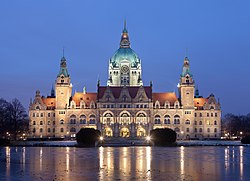 Before it became the capital of Lower Saxony in 1946, Hanover was the capital of the Principality of Calenberg (1636-1692), the Electorate of Brunswick-Lüneburg (1692-1814), the Kingdom of Hanover (1814-1866), the Province of Hanover of the Kingdom of Prussia (1868-1918), the Province of Hanover of the Free State of Prussia (1918-1946), and of the State of Hanover (1946). From 1714 to 1837, Hanover was by personal union the family seat of the Hanoverian Kings of the United Kingdom of Great Britain and Ireland, under their title of the dukes of Brunswick-Lüneburg (later described as the Elector of Hanover). Before it became the capital of Lower Saxony in 1946, Hanover was the capital of the Principality of Calenberg (1636-1692), the Electorate of Brunswick-Lüneburg (1692-1814), the Kingdom of Hanover (1814-1866), the Province of Hanover of the Kingdom of Prussia (1868-1918), the Province of Hanover of the Free State of Prussia (1918-1946), and of the State of Hanover (1946). From 1714 to 1837, Hanover was by personal union the family seat of the Hanoverian Kings of the United Kingdom of Great Britain and Ireland, under their title of the dukes of Brunswick-Lüneburg (later described as the Elector of Hanover).
The city is a major crossing point of railway lines and highways (Autobahnen), connecting European main lines in both the east-west (Berlin-Ruhr area/Düsseldorf/Cologne) and north-south (Hamburg-Frankfurt/Stuttgart/Munich) directions. Hannover Airport lies north of the city, in Langenhagen, and is Germany’s ninth-busiest airport. The city’s most notable institutions of higher education are the Hannover Medical School with its university hospital (Klinikum der Medizinischen Hochschule Hannover), and the University of Hanover.
The Hanover fairground, due to numerous extensions, especially for the Expo 2000, is the largest in the world. Hanover hosts annual commercial trade fairs such as the Hanover Fair and the CeBIT. The IAA Commercial Vehicles show takes place every two years. It is the world’s leading trade show for transport, logistics and mobility. Every year Hanover hosts the Schützenfest Hannover, the world’s largest marksmen’s festival, and the Oktoberfest Hannover.
“Hanover” is the traditional English spelling. The German spelling (with a double n) is becoming more popular in English; recent editions of encyclopedias prefer the German spelling, and the local government uses the German spelling on English websites. The English pronunciation, with stress on the first syllable, is applied to both the German and English spellings, which is different from German pronunciation, with stress on the second syllable and a long second vowel. The traditional English spelling is still used in historical contexts, especially when referring to the British House of Hanover.
|





 The Battle of Langensalza was fought on 27 June 1866, during the Austro-Prussian War, near Bad Langensalza in what is now modern Germany, between the Kingdom of Hanover and the Kingdom of Prussia. The Hanoverians won the battle but were then surrounded by a larger and reinforced Prussian army. Unable to link up with their Bavarian allies to the south, the Hanoverians surrendered.
The Battle of Langensalza was fought on 27 June 1866, during the Austro-Prussian War, near Bad Langensalza in what is now modern Germany, between the Kingdom of Hanover and the Kingdom of Prussia. The Hanoverians won the battle but were then surrounded by a larger and reinforced Prussian army. Unable to link up with their Bavarian allies to the south, the Hanoverians surrendered. George V (George Frederick Ernest Albert; 3 June 1865 – 20 January 1936) was King of the United Kingdom and the British Dominions, and Emperor of India, from 6 May 1910 until his death in 1936.
George V (George Frederick Ernest Albert; 3 June 1865 – 20 January 1936) was King of the United Kingdom and the British Dominions, and Emperor of India, from 6 May 1910 until his death in 1936. Before it became the capital of Lower Saxony in 1946, Hanover was the capital of the Principality of Calenberg (1636-1692), the Electorate of Brunswick-Lüneburg (1692-1814), the Kingdom of Hanover (1814-1866), the Province of Hanover of the Kingdom of Prussia (1868-1918), the Province of Hanover of the Free State of Prussia (1918-1946), and of the State of Hanover (1946). From 1714 to 1837, Hanover was by personal union the family seat of the Hanoverian Kings of the United Kingdom of Great Britain and Ireland, under their title of the dukes of Brunswick-Lüneburg (later described as the Elector of Hanover).
Before it became the capital of Lower Saxony in 1946, Hanover was the capital of the Principality of Calenberg (1636-1692), the Electorate of Brunswick-Lüneburg (1692-1814), the Kingdom of Hanover (1814-1866), the Province of Hanover of the Kingdom of Prussia (1868-1918), the Province of Hanover of the Free State of Prussia (1918-1946), and of the State of Hanover (1946). From 1714 to 1837, Hanover was by personal union the family seat of the Hanoverian Kings of the United Kingdom of Great Britain and Ireland, under their title of the dukes of Brunswick-Lüneburg (later described as the Elector of Hanover). 

